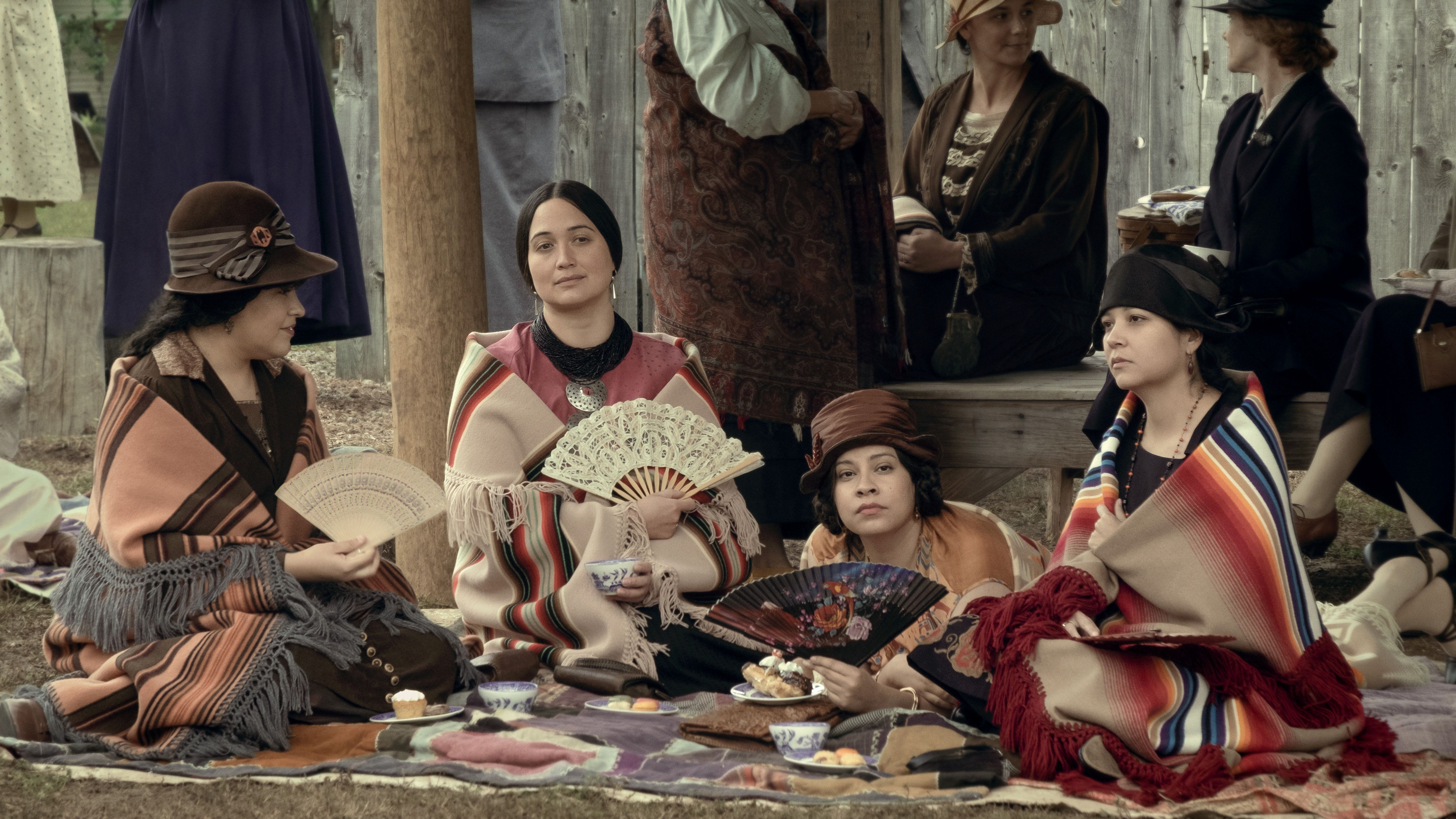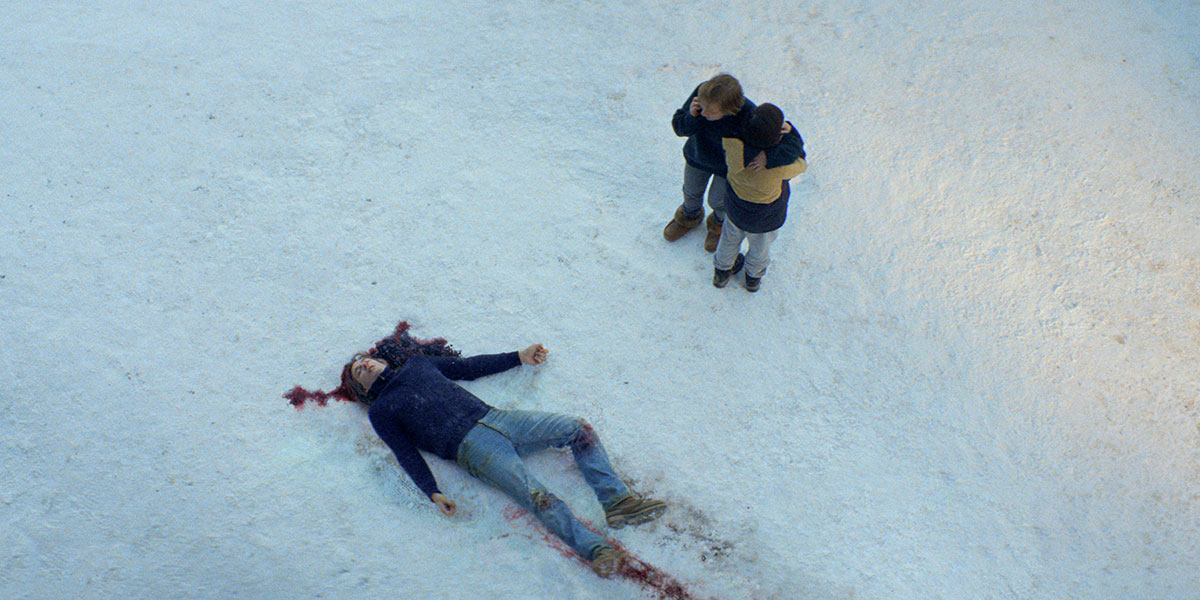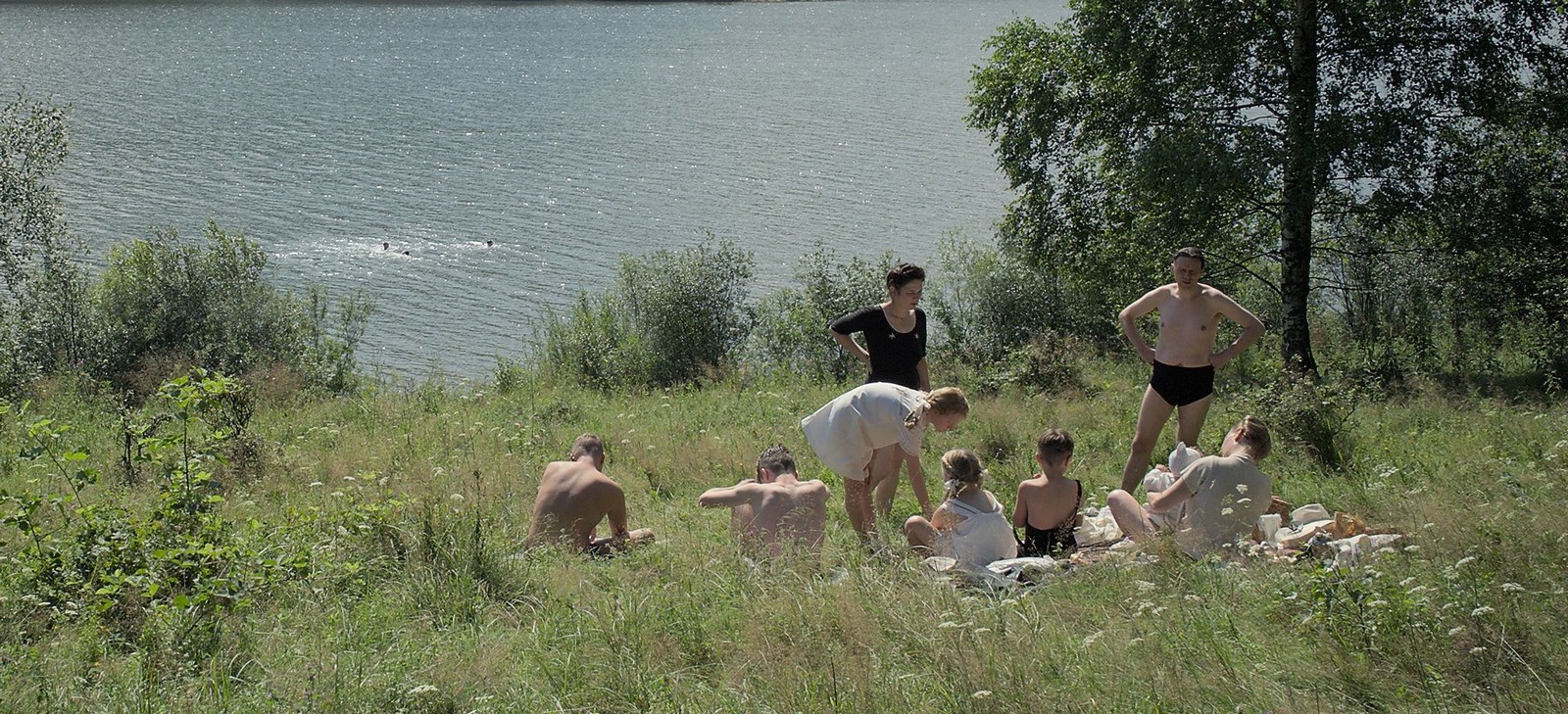-
Posts
19,441 -
Joined
-
Days Won
34
Posts posted by KK
-
-
1 hour ago, Jurassic Shark said:
Not really. You could input the difficult parts with a mouse.
Depends. I think mosabri2's point about being a poor pianist is more about how that can be symptomatic of having limited knowledge of existing musical vocabulary and repertoire.
This limits your imaginative capacity for what you write. Suddenly your palette, and musical choices are defined by the limitations of your sample libraries, plugins and DAW capabilities. Because that's what you know. And for better or for worse, most new film music, even the big "traditional" orchestral ones, have become aesthetically informed by "DAW music". That's why you never really see concert music composers do "mockups" for commissions, even though they too, also mostly write on computers.
Of course, piano proficiency or technical performance prowess is hardly a requirement to be a great, or more importantly, interesting composer (history has given us many great composers/shitty performers). You can circumvent those limitations by expanding your musical vocabulary, what you listen to, what you watch, how you make music (away from the DAW), the musicians you work with (you learn the most through this), etc. That's why I'd argue the most interesting music being written now for film is being done by the "outsiders".
But alas, mainstream Hollywood, where the money is, rewards playing it by convention.
-
As has been described in detail above, most film composers aren't very good at reading music nowadays. They can slowly read through a piece of sheet music (like sounding out words) or loosely follow a score to a performance or a recording session, but many aren't fluent with it, because unless you happen to do a lot of orchestration, it doesn't have to factor much into the average film composer's workflow anymore. And this has definitely had an impact on the general sound and aesthetic of mainstream film music.
14 hours ago, Jurassic Shark said:Amen to that.

I find that performance quite okay.
He's right. That video is telling that Djawadi isn't really a good pianist. But then again, most film composers aren't, and that's also okay.
14 hours ago, Richard Penna said:Happy to be corrected, but I wonder if this has more to do with composers wanting to be in the booth and discuss the music with the filmmakers, instead of worrying about the conducting side. However, this does go along with my general stance in this area that the effectiveness and suitability of a score for its film significantly outweighs any need for said score to be technically complex.
Yes, film composers are generally more useful in the booth. But the reality is, most film composers are terrified of conducting because many of them aren't very good at it and haven't had many opportunities to get better at it. And again, that's okay. It's always more effective to have someone who knows what they're doing and knows how to best communicate to the musicians on the podium, so they can best translate the composer's needs from the booth.
The demanding needs of a contemporary film music recording session now requires multiple people with specialized duties (i.e. conducting, copyists, recording engineers, etc) to get the deed done. Gone are the days of the romanticized renaissance man on the podium (a la Williams, who was also often supported by a robust team).
-
I liked the new one more than the last one. It still rings a little hollow for me, but it is impressive. Clearly, the films divided the plot material poorly. I'm glad it's doing what it is to generate box office interest, but the euphoria around it being the saviour of cinema feels silly.
The score is less offensive to the picture than its predecessor, but it's still not very good. I listened to the sketchbook last night, and there's honestly some interesting stuff in there (unlike the drab colourless OSTs). If only Denis' musical instincts allowed more for that kind of material, these films could have been more imaginative and wild.
-
10 hours ago, JNHFan2000 said:
Cool to hear him acknowledge here that the new Lion King was more or less a derivative knock-off.
I think it's wise that Zimmer stepped out of the way, because I don't think he could recreate that sound himself anymore anyway (that's why we have Dune!).
Hopefully, this will inspire HGW though. He's got it in him to write something good for this, as long he's not as bored as he's sounded for the last decade or so.
-
- Popular Post
- Popular Post
Quote“I thought, ‘Well, that’s not a complaint that I want to have to live with.’ So I went about it not to try to compete with Igor Stravinsky or the great classical composers, but to learn from the process of doing — the best school of all.”
Even at 92, this man is spinning gold in wisdom.
12 hours ago, Tom said:I do think that he loves the popular vein of composing more than he realizes or at least sometimes lets on. Jumping at the ESPN thing the way he did and the comments in this interview point to him wanting more than just concert-hall composing.
Agreed, though I think this is a recent thing he's embraced. I feel like the same insecurities he speaks to have plagued him for much of his career in his prime. But now he seems to have let them go, especially since many of those institutions now celebrate him and his craftsmanship, a caliber and mode of working that has more or less disappeared across the spectrum, be it film or concert music.
- Will, ConorPower and Sylvan
-
 3
3
-
That series is dull and derivative. Occasionally shot nicely, but riddled, almost laughably, with sad drama clichés. Kidman verges on self-parody.
-
Yikes. I hadn't seen this before. But this isn't very good, is it?
-
On 26/01/2024 at 8:02 AM, Jay said:
I went into Saltburn with a completely open mind and really ended up not liking it at all. I wasn't surprised when it got no Oscar nominations. I don't think it will be talked about much after another few months
Agreed. It's a remarkably empty film. Beautifully shot, and well-acted, but little more than a string of "shock" moments designed for TikTokers to foam over. Though it does have a particular fanbase.
On 26/01/2024 at 6:58 AM, crocodile said:Regardless of your opinion, that doesn't say much. A lot of really great films make little impression at first and take their time to make their big comeback some years later. Things that burn the brightest at first, on the other hand, tend to disappear or lose their relevance. Life is funny like that.
Karol
I don't think Babylon is by any means a "great film". I think it's very impressively made, but has little to say that hasn't been said before in better ways. All of it feels like imitative grandstanding.
It's basically Boogie Nights (almost beat for beat) meets Singing in the Rain, and I'd rather watch both of those.
But I'd take all three over Saltburn.
2 hours ago, filmmusic said:Opinions about the film? Is it worth it or should I wait for the blu-ray?
I generally LOVE Ghibli films.
It's great! Like a darker cousin to Spirited Away. It's messier than his other films, and is filled to brim with ideas (perhaps a bit too much so), but it's still lovely. Definitely worth watching it in the theatres.
-
- Popular Post
- Popular Post
QuoteHome Alone can’t be in the same idiom as Saving Private Ryan or Jurassic Park, but perhaps we all have many parts to our characters. Somewhere in all of my film scores there must be some kind of ‘me’. But I leave that to others to identify.”
What a class act.
- Jay, Taikomochi, Bayesian and 2 others
-
 5
5
-
There are still films to see, but at the moment, these are the ones that would likely be on my list:
Poor Things
Killers of the Flower Moon
The Zone of Interest
Oppenheimer
Anatomy of a Fall
All of Us Strangers
The Delinquents
Past Lives
I do think ultimately, Poor Things made for the most riveting cinema, just in everything it tries to do with its tools, even if some of the other films try to reach for bolder places.
Films that I haven't gotten to yet that I anticipate will crack my top 10:
La Chimera
Perfect Days
The Taste of Things
Fallen Leaves
Scores that I've enjoyed or have made an impression:
Poor Things by Jerskin Fendrix
The Zone of Interest by Mica Levi
Spider-Man: Across the Spider-verse by Daniel Pemberton
American Fiction by Laura Karpman
Oppenheimer by Ludwig Gorannsson
Poor Things is without a doubt, the most thrilling film score of the year in my opinion.
-
1 hour ago, Nick1Ø66 said:
But just watching a film in the cinema, with loud patrons, crying babies, people chomping on popcorn, etc. is often a compromised experience. Watching at home on the small screen is a compromised experience. Back in the days before digital, faded, broken prints, the projection bulb at the wrong temperature, films shown in the wrong aspect ratio, etc. was a compromised experience. Somehow, filmmakers and patrons lived through those dark times.
Yes, but with how far technology has come with the degree of control of the theatrical experience, I think it's fair for the director to want to curate that experience as much as they can.
And the variables around different theatres just randomly breaking up the film at any point of its duration without the director's knowledge...that is an understandably painful concession for any director, especially someone like Scorsese, who at this stage of his career, has definitely earned that level of command over how he wishes his films to be presented to the world.
To your broader point, yes, I'm a big fan of bringing intermissions back for epics of this length. As long as they're built into the design of the work.
-
-

Killers of the Flower Moon
This is an excellent picture. It's a brooding, operatic meditation on Scorsese's familiar themes of power and corruption but in a far more compelling spiritual context. De Niro is absolutely terrifying in one of his best roles in years (decades?) and Lily Gladstone just draws you in from her very first frame. Beautiful visual gestures disrupt the narrative, evoking the metaphysical qualities of Scoresese's often-overlooked 21st-century masterpiece, Silence. The framing of his subjects and narrative just goes to show that Scorsese, as an inherently cinematic filmmaker, has still got that spark in a way I feel his contemporaries have lost over the years (I'm looking at you, Spielberg). The unreliable narration of the events of this epic draws our sympathies in directions that make the experience thrillingly ambiguous and uncomfortable. And while there is a point where the investigation starts to draw the spotlight away from the magnetic Gladstone and become a third-act courtroom drama that I thought would actively decenter the Osage people, the film doesn't get "lost" for too long and brings us back on track with a very thoughtful coda.
Robertson's score remains the only uninspired facet of this production. When it works, it works, albeit often too buried underneath everything. But either the film needed a score with real personality or should have played out with no score at all.
- Jay and Glóin the Dark
-
 2
2
-
3 hours ago, Glóin the Dark said:
Did you see it at TIFF?I did! I was trying to catch it at Cannes when I was there, but never made it work. So I'm glad I got to see it here.
There were a couple of other great TIFF films too, which I'll spew about here eventually.

Anatomy of a Fall
Excellent courtroom drama on the paradox of vulnerability and doubt. Sandra Hüller is such a revelation (she's good in Zone of Interest too, but here she just gets to really shine), you can stare at her face for hours and watch everything she imbues onto the screen. The film feels really incisive and never really gets sensational. Love how it plays with language too.
-

Zone of Interest
Glazer's latest is a sort of essay on the banality and invisibility of evil. The film withholds and reveals information, playing with loaded (and potent) images with a sort of alien gaze that recalls Under the Skin. But there's a more rigorous formalism here, that even almost reaches a point of burning itself out before subtly shifting and surprising you. The more I think about it, the more it sticks with me. And that makes good cinema, right?
Mica Levi's two bookend pieces for the film are absolutely fantastic.
- Glóin the Dark and iamleyeti
-
 2
2
-
On 14/09/2023 at 4:48 PM, filmmusic said:
When I was a teen and first saw the Three Colors Trilogy, I loved it.
I didn't fully understand it, but it was so beautiful to look at and had masterful music too
I still don't fully grasp it, but it still moves the senses..
I just watched the UHD from the beautiful Curzon set.
If you want the trilogy in UHD, this is the set to buy and not the Criterion one, as it has inferior encoding.
Blue is easily the worst of the trilogy. And it's depiction of the music world is laughable.
White is my favourite. But Red is good too.
-
I haven't heard the score, but that is some very Marianelli-esque harmony. I dig it.
-
Oh I’m sure that plays to Nolan’s intentions, but as you say, it cheapens the scene and also betrays a “lesser film” if you will. I think the hypocrisies of both men that Nolan smartly lays out would just read so much stronger if score was different, and RDJ wasn’t made to sound like he was the Joker (cheesy col legnos galore and Bane-esque synth stabs 🙄) or something.
It also doesn’t help that all the “ramp up the tension” cues pretty much sound the same.
- MaxMovieMan and Not Mr. Big
-
 1
1
-
 1
1
-
Oppenheimer was also largely overwhelming (not in a good way…courtroom monologues don’t need to be scored like the climax of a Batman film). But yes it did help create potent cinematic moments. I also felt that Dune was mostly inert in comparison.
Jóhannsson’s scores actually played as effective counterpoint to those early Villeneuve’s films.
- Not Mr. Big and MaxMovieMan
-
 1
1
-
 1
1
-
I seriously doubt Zimmer will win again for Dune.
Ludwig is indeed the current frontrunner.
- Not Mr. Big and MaxMovieMan
-
 1
1
-
 1
1
-
Watched it again last night. It's still very good.
But holy crap is it overscored...
-
3 hours ago, Trope said:
From my understanding, the theme isn't doubling in time with each tempo increase. If it was, you would be able to tap a regular pulse all the way through and each note would be exactly half its original length (and hence double its original speed), so that crotchets would become quavers (or half-notes would become quarter-notes, for my American friends). What Ludwig has done is he seems to increase the speed by an irregular percentage each time (and, to my ears, exponentially), which disrupts the regular pulse/metre and makes the music feel like it is flying further and further out of control (mimicking the chain reaction concept in the film).
Check out 2:29 in "Theorists" if you wish to hear Ludwig alter the notes/harmonies of the ascending violin theme, albeit without the tempo increases.
Well sure. I just don't find that that intelligent or clever.
Subatomic particle behaviour offers so many wildly interesting and imaginative ways to think about movement and motion and Ludwig's theme, while "pretty" to listen to at first, feels like a pretty tepid response.
Theorists is nice, but doesn't strike me as anything exceptional.
-
1 hour ago, Glóin the Dark said:
In particular, the quantum ideas deserve a more harmonically and rhythmically complex accompaniment. There was an interesting passage involving a discretely and rapidly changing metre, but I only noticed it a few times.
Amen.
Even that ascending/descending (Oppenheimer in the quantum world?) theme is pretty boring once you hear it again on its own. It's just doubling in time on the way down and keeps repeating while speeding up. I thought it was at least playing with different kinds of tuplets on each descent...shame.
The score is striking enough in the film, and that has its own merit. But musically, it's pretty flat.
-
What about that trailer was woke?






Are There Any Film Composers Working Who Can’t Read/Write Music?
in General Discussion
Posted
Popular tracks featuring the piano, sure. But hardly pianistic. They're like pop songs, which is not at all a bad thing, but that doesn't make them great piano pieces.
The piano work in Coward is mostly just fast, repeating arpeggios. Nice to listen to, but doesn't take a strong, or even competent pianist to write.
A good case that comes to mind right now are Philip Glass' etudes. Glass himself has admitted many times to his piano-playing deficiencies. But he wrote those to become a better performer. And those compositions, while simple in design, are quite thoughtful in thinking about the mechanics of piano performance, specifically around what his style demands of the performer. They're excellent piano compositions. The Zimmer/Djawadi examples above might be fine enough pieces but aren't good examples of strong piano writing.
Indeed. And yet Adams' piano works are very pianistic. I'm sure Adams is decently proficient on the instrument, just probably not at a concert-performance level. He certainly knows the language.
But these comparisons are a bit moot because composers in that world are often curating the works around the commissioning ensemble or soloist. The priorities of the writing are different. That's not really how most composers think in the film world.